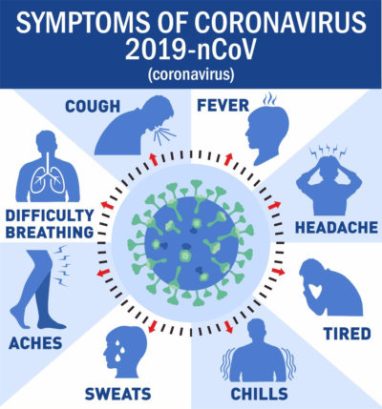Georgia’s number of coronavirus cases spiked by more than 30 percent in a day, reaching 2,198 statewide, state officials reported.
That total, reported at 7 p.m. Friday, climbed by 555 from Thursday’s figure of 1,643 as of Thursday evening. Nine more Georgians have died, bringing the COVID-19 death toll to 65.
The increases represent more testing for the disease and also the spread of the virus in certain communities.
That spread is rampant in Albany and elsewhere in Dougherty County, in southwest Georgia. The main hospital there has reported 16 deaths.

The hospital, Phoebe Putney, said Friday that it has 39 confirmed coronavirus cases in the hospital, and another 86 hospitalized individuals awaiting test results.
“We’re still getting more cases coming to the ER,’’ said Phoebe Putney spokesman Ben Roberts.
The Georgia National Guard has sent two medical support teams to Phoebe, which include a doctor, two physician assistants, four nurses and 13 military medics. The Guard also provided five ventilators to Phoebe, and deployed service members to a PruittHealth nursing home in Albany, where a resident recently died from COVID-19.
The CDC and Georgia Public Health have sent a team of epidemiologists to Dougherty County to investigate the outbreak and contain its spread.
“The last few days, we started getting help from transferring patients [to other hospitals] and getting more support from other hospitals,’’ Phoebe’s Roberts said.
The biggest need is more critical care staffing, he added.
The startling impact of coronavirus on Albany is underscored by new data published by the New York Times on Friday.
Among cases per capita by metro area, Albany is second in the nation, trailing only New York City. Both rates trail only two other areas in the world – Wuhan, in China, where the outbreak began, and the Lombardy region of Italy.
Albany, of course, has a far lower overall population than New York or either of the two overseas locations. But the southwest Georgia city’s rate of the disease — 1.35 cases per 1,000 people — is extraordinary.
The impact in Albany was cited by another national publication Friday.

A ProPublica article reported that advocates and families of those with intellectual disabilities say these individuals are “especially vulnerable’’ to COVID-19 because many of those with significant impairments live in group homes or other congregate settings.
The report focuses on the death of Emily Wallace, a 67-year-old with Down syndrome who lived in a group home in Albany.
“In mid-March, Emily was the first person with an intellectual disability in her community — and possibly one of the first in the nation — to be diagnosed with COVID-19,’’ ProPublica reported.
Here’s a link to the ProPublica article.
In other coronavirus news:
Clinical trials to study a potential new vaccine for coronavirus began Friday morning at Emory University in Atlanta. The study trials, which started earlier this month in Seattle, are the first phase of a process expected to take at least a year to complete, Capitol Beat News Service reported. Overseen by the National Institutes of Health, the trials mark the first official testing of a possible COVID-19 vaccine in the U.S.
The American Hospital Association, the American Medical Association and other medical groups said in a statement that they are “vitally concerned with the shortages of masks, face shields and other personal protective equipment (PPE), ventilators, swab kits, and testing capacity that are critically needed by frontline caregivers and patients. ‘’

The groups said that “PPE is needed immediately to protect the caregivers who are risking their own health to care for patients in the most need. Shortages of ventilators and intensive care facilities threaten the lives of the sickest patients.
“We strongly support emergency efforts at the federal level to dramatically increase the production and distribution of PPE and other necessary medical equipment and supplies.’’
President Trump invoked the Defense Production Act on Friday to require General Motors to produce more ventilators to deal with increased hospitalizations due to the spread of the novel coronavirus. He also signed a record $2 trillion relief — designed to blunt the economic impact of the virus on the country — shortly after the measure cleared Congress.

